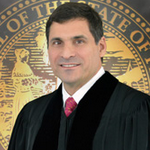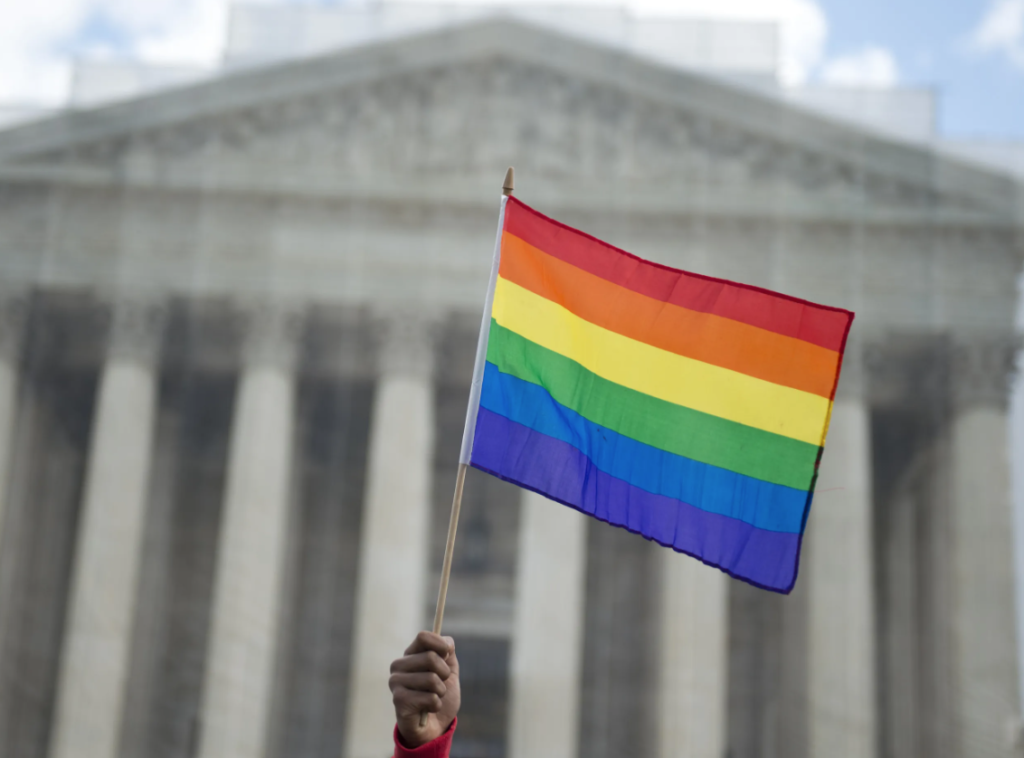Judges Corner
LGBTQ Families in Court

 The Honorable Scott M. Bernstein | sbernstein@jud11.flcourts.org
The Honorable Scott M. Bernstein | sbernstein@jud11.flcourts.org Elizabeth F. Schwartz, Esq. | liz@elizabethschwartz.com
Elizabeth F. Schwartz, Esq. | liz@elizabethschwartz.com
LGBTQ folks gained substantial legal rights in recent years, including the right to marry, to divorce, and to become parents. But look no further than Justice Clarence Thomas’s recent concurrence in the Dobbs opinion, however, to see that rights granted by a Supreme Court opinion are precarious. Justice Thomas invited the entire Court to revisit the rights to sexual intimacy and same-sex marriage. This sent many in the LGBTQ community reeling.
According to the Williams Institute, a public policy think tank which focuses on issues related to sexual orientation and gender identity, roughly 4.6% of Floridians are LGBTQ and 24% of LGBTQ people in Florida are raising children. A recent global study indicated that 1 in 5 young adults born after 1997 (known as Gen Z) identifies as something other than straight. Florida ranks third in the nation for the most same-sex couples, behind only New York and California. LGBTQ legal issues are likely to become more, not less, prominent in our law practices and court cases.
The term LGBTQ refers to Lesbian, Gay, Bisexual, Transgender, Queer or Questioning individuals. It can take a bit of practice to get used to new acronyms and concepts. For tips, ask a teenager. Younger folks tend to be more comfortable with the fluidity of gender and sexual orientation and with the idea that both exist on a spectrum that is neither binary nor fixed.
LGBTQ issues could present themselves in your family law practice in a variety of ways. You might assume that marriage equality leads to divorce equality, but there are nuances unique to LGBTQ dissolutions. Among them is the date of marriage. Because of the relatively recent arrival of the freedom to marry, many couples have only been legally married a short period of time but together in a committed relationship for much longer. Yet the date of marriage controls for purposes of division of marital assets and awarding spousal support. A person counting on a certain split of equitable distribution or alimony may be shocked they get no credit for time served before the legal marriage – and that they only have a small entitlement from a short-term legal marriage. That might result in a seemingly inequitable distribution to an impecunious spouse. It can be hard to explain to your client after the fact that they should have done a nuptial agreement. It’s also important to understand that psychological dynamics may be quite different ending a two-year marriage when it’s really a 20-year relationship.
If someone comes to you before entering into a same-sex marriage, think about whether the strategic use of a nuptial agreement could address any inequity the law would otherwise provide upon divorce. Collaboratively-trained family lawyers have found the collaborative law process useful in crafting prenuptial agreements for couples marrying after many years together. For couples who sped to the altar without thinking these things through (and the pent-up demand for the freedom to marry did lead many to do so), consider drafting a postnuptial agreement to resolve any such unfairness.
Because marriage equality doesn’t mean parentage equality, obtaining a confirmatory adoption or parentage judgment when a married couple has a child, even though both parents are on the child’s birth certificate, is strongly recommended, according to attorney Elizabeth Schwartz, a Board Certified adoption lawyer whose practice concentrates in these areas. In Florida, the marital presumption applies when a child is born during an intact marriage, but many biological parents have attempted to argue otherwise on divorce, particularly if they have moved to another jurisdiction. This doesn’t mean that a non-bio parent who doesn’t adopt isn’t a legal parent; it’s just the “belt and suspenders” approach to ensure a court order exists which should be afforded full faith and credit in any jurisdiction, rather than relying solely on a Florida birth certificate.
It may be difficult to understand how a simple thing such as changing a gender marker can be lifesaving. But for individuals whose sense of self does not align with their sex assigned at birth, they might seek to correct their gender marker (from Female to Male, or vice versa, or to the nonbinary gender identifier, “X”) to protect their bodily security. Changing a passport, social security card or driver’s license is relatively straightforward. Correcting a birth certificate typically requires a court order. Florida has no statute specifically detailing how to change a gender marker. But there is statutory authority to correct errors in birth certificates. Nothing prohibits Florida judges from granting what can be life-saving relief. These requests are almost always unopposed, the State agencies in Tallahassee are happy to comply, and many Florida judges feel comfortable using their inherent powers of general jurisdiction to do equity.
Please understand that it is almost always rude to ask someone about their genitals. While some folks might choose to have gender confirmation surgery, many do not have access to or wish to undertake these interventions. But they would likely be able to produce a letter from a medical doctor attesting to hormone therapy as part of a gender transition. Attorney Elizabeth Schwartz obtains such a letter in all of her gender marker change cases.
More of our children are comfortable identifying as transgender or nonbinary. But these kids don’t always enjoy the support of both their parents. Remember that the suicide rate for LGBTQ kids is four times higher than the rate for non-LGBTQ children, and non-acceptance from a parent is a huge red flag. When a child’s very identity is caught between warring parents, the results can be tragic. If the non-supportive parent comes to your office, consider your input carefully. You might be the sole voice counseling acceptance. You might have the opportunity to suggest a temporary solution such as hormone-blockers, which delay the onset of puberty and the concomitant physical developments. That simple and reversible step can save the child’s life and allow time for psychological interventions to save the parent-child relationship.
Lastly, family lawyers would be wise to also have a basic comprehension of the estate planning tools for LGBTQ individuals and couples. Ensure your LGBTQ clients and friends memorialize their intentions for what happens on death or disability, especially if it is different than what the law’s default provisions would provide. Homophobia remains prevalent, for example, in hospitals and assisted living facilities, with LGBTQ individuals and couples still repeatedly denied the opportunity to be by the bedside of their loved one, even if married, because of the “sincerely-held religious beliefs” of health care providers. In this era of the proliferating self-help documents available online, be sure these estate plans are in strict compliance with Florida law.
While the LGBTQ community has made great progress, there is a long way to go to achieve full lived equality, especially for the most vulnerable among us. Working in the family law context means you are in a unique position to bring a measure of justice to those who have long lived and loved outside the legal system.
Please also use all available opportunities to educate colleagues and judges, challenge your assumptions, modernize your language and change your forms, websites and social media to reflect 21st century realities. And by all means, keep talking about these issues as they continue to evolve.
